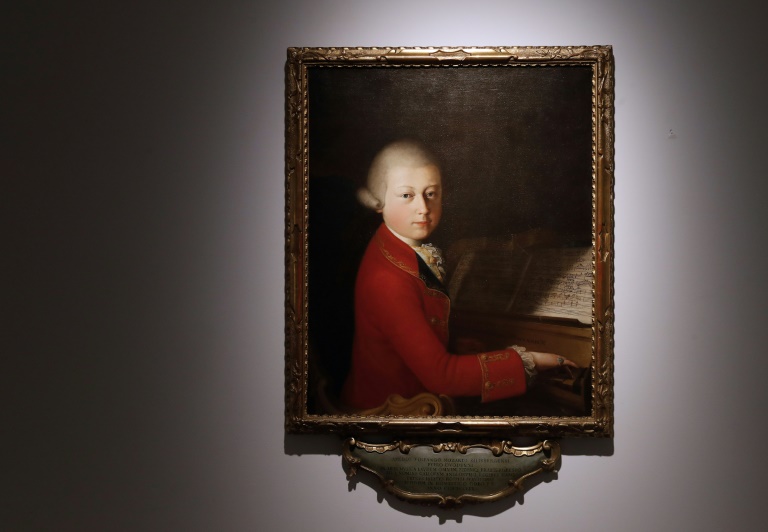A previously unknown piece of music composed by Wolfgang Amadeus Mozart when he was probably in his early teens has been uncovered at a library in Germany, researchers said Thursday.
The piece dates to the mid- to late-1760s and consists of seven miniature movements for a string trio lasting around 12 minutes, the Leipzig Municipal Libraries said in a statement.
Born in 1756, Mozart was a child prodigy and began composing at a very early age under his father’s guidance.
Researchers discovered the work at the city’s music library while compiling the latest edition of the so-called Koechel catalogue, the definitive archive of Mozart’s musical works.
The newly discovered manuscript was not penned by Mozart himself but is believed to be a copy made in around 1780, the researchers said.
The piece was performed by a string trio at the unveiling of the new Koechel catalogue in the Austrian city of Salzburg on Thursday.
It will receive its German premiere at the Leipzig Opera on Saturday.
The piece is referred to as “Ganz kleine Nachtmusik” in the new Koechel catalogue, according to the Leipzig libraries.
The manuscript consists of dark brown ink on medium-white handmade paper and the parts are individually bound, they said.
The Koechel catalogue describes the piece as “preserved in a single source, in which the attribution of the author suggests that the work was written before Mozart’s first trip to Italy”, according to the municipal libraries.
The young Mozart had been known to researchers up until now “mainly as a composer of piano music, arias and symphonies”, Ulrich Leisinger of the International Mozarteum Foundation in Salzburg said in a statement.
A list by Mozart’s father had alerted academics to the existence of “many other chamber music compositions” by the young artist, which were all thought to have been lost until the emergence of the string trio, Leisinger said.
“Since the inspiration for this apparently came from Mozart’s sister, it is tempting to imagine that she kept the work as a memento of her brother,” Leisinger said.







